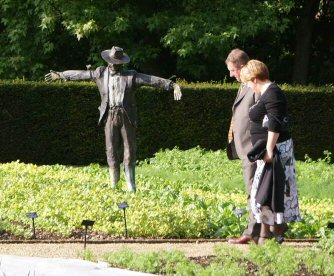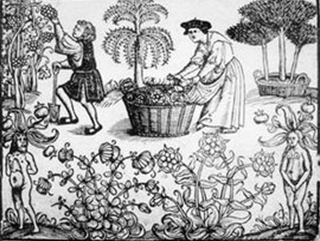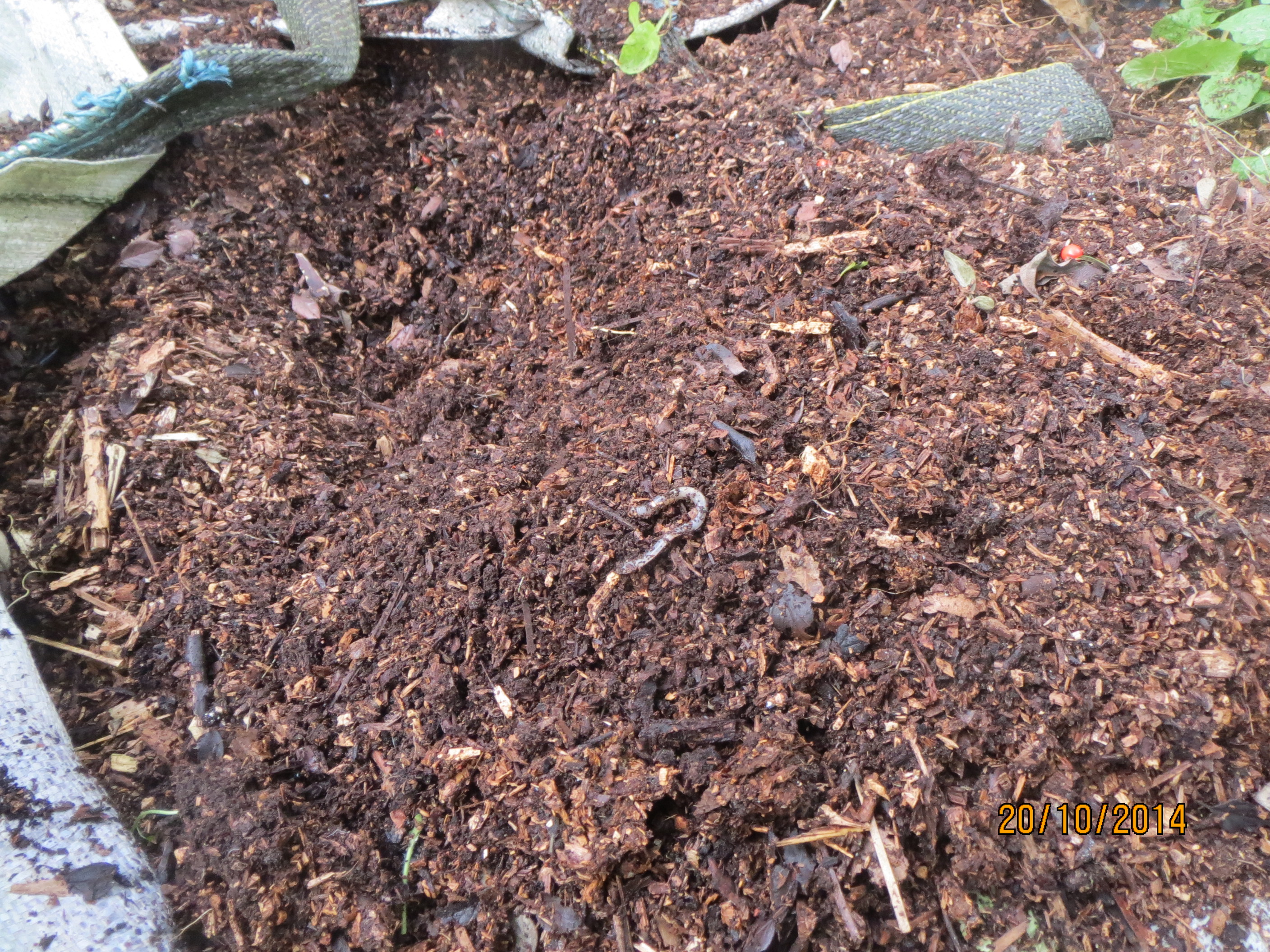- Home
- Practical Advice
- Introduction to garden management
Introduction to garden management for wildlife
Garden Management is the bit of our website that discusses the practical aspects of gardening with wildlife in mind - except for the key areas of planting and habitat creation.
It is fair to say that while studies have shown the overall biodiversity of gardens, and there is extensive horticultural knowledge of how some plants (and vegetables) respond to management, we have very little hard scientific evidence about how typical garden management directly affects garden wildlife.
As a prominent example, it may seem a no-brainer to many people that using chemicals in the garden is bad for wildlife. It's quite clear that extensive use of insecticides in the environment is very harmful, and fertiliser use promotes grass at the expense of wild plants, and can cause eutrophication in water courses.
On the other hand, what is the actual impact evidence for typical, small scale use of permitted chemicals in gardens, according to the instructions on the bottle? It is hardly likely to be positive for wildlife, but can we actually detect an impact? This would be an expensive and complex research project, but until it has been done, we cannot say that careful use of chemicals is anathema to garden wildlife. Many wildlife gardeners will however continue to follow the precautionary principle and avoid chemicals as much as they can! It is interesting that so many sellers are offering "organic" or "wildlife-safe" herbicides and pesticides. In truth, if these do work they are damaging to wildlife. If they don't they aren't worth buying.
Other management options are less controversial, but generally equally under-researched. What is the impact of annual deep digging on life in soil? If we avoided compaction by never standing on the soil and eliminated digging, would there be measurable benefits?
It is important to remember that many studies have shown how biodiverse ordinary gardens can be without special management techniques. It’s likely then that typical garden management isn’t too damaging for wildlife – but it would be good to have the facts!
We plan to have the following pages within this section of the website
- Garden design
- Compost and fertility
- "Tidiness" and wildlife
- Managing pests
- Managing without peat
- Wildlife Gardening products that do and don’t work.
There are several "How-to" guides on garden management to download and you can find them through these pages:
How to: Use plants to support wildlife
How to: Create special garden habitats
How to: Garden with other people
How to: Tips for yourself
Please also let us know if there are other management topics you would like us to cover.
Page written by Steve Head
![Photo: By Darwall, R H (Lt), Royal Navy official photographer [Public domain], via Wikimedia Commons"](images/Digging for victory small.jpg)




![Photo: By Darwall, R H (Lt), Royal Navy official photographer [Public domain], via Wikimedia Commons"](images/Digging for victory small.jpg)

Introduction to garden management for wildlife
By Steve Head
Garden Management is the bit of our website that discusses the practical aspects of gardening with wildlife in mind - except for the key areas of planting and habitat creation.
It is fair to say that while studies have shown the overall biodiversity of gardens, and there is extensive horticultural knowledge of how some plants (and vegetables) respond to management, we have very little hard scientific evidence about how typical garden management directly affects garden wildlife.
As a prominent example, it may seem a no-brainer to many people that using chemicals in the garden is bad for wildlife. It's quite clear that extensive use of insecticides in the environment is very harmful, and fertiliser use promotes grass at the expense of wild plants, and can cause eutrophication in water courses.
On the other hand, what is the actual impact evidence for typical, small scale use of permitted chemicals in gardens, according to the instructions on the bottle? It is hardly likely to be positive for wildlife, but can we actually detect an impact? This would be an expensive and complex research project, but until it has been done, we cannot say that careful use of chemicals is anathema to garden wildlife. Many wildlife gardeners will however continue to follow the precautionary principle and avoid chemicals as much as they can! It is interesting that so many sellers are offering "organic" or "wildlife-safe" herbicides and pesticides. In truth, if these do work they are damaging to wildlife. If they don't they aren't worth buying.
Other management options are less controversial, but generally equally under-researched. What is the impact of annual deep digging on life in soil? If we avoided compaction by never standing on the soil and eliminated digging, would there be measurable benefits?
It is important to remember that many studies have shown how biodiverse ordinary gardens can be without special management techniques. It’s likely then that typical garden management isn’t too damaging for wildlife – but it would be good to have the facts!
We plan to have the following pages within this section of the website
- Garden design
- Compost and fertility
- "Tidiness" and wildlife
- Managing pests
- Managing without peat
- Wildlife Gardening products that do and don’t work.
There are several "How-to" guides on garden management to download and you can find them through these pages:
How to: Use plants to support wildlife
How to: Create special garden habitats
How to: Garden with other people
How to: Tips for yourself
Please also let us know if there are other management topics you would like us to cover.
Page written by Steve Head


|
|
|
|
|
| Introduction to Garden Science | ||
| Garden Ecology | ||
| Garden Biodiversity | ||
| History of gardens and wildlife | ||
| Finding out more | ||
| Wildlife Gardening Myths |
| Introduction to Garden Ecology | ||
| Gardens as a resource | ||
| Physical environment | ||
| Foodwebs and feeding roles | ||
| Climate change | ||
| Sheffield BUGS project | ||
| Plants for Bugs Project | ||
| Research needs | ||
| Garden surveys | ||
| Garden soils |
| Introduction to Garden Biodiversity | ||
| How many species in gardens? | ||
| Native and non-native issues | ||
| Gardens and conservation |
| Introduction to Finding out more | ||
| Natural England booklets | ||
| Books and websites | ||
| Specialist societies | ||
| Scientific literature | ||
| Facebook groups |
| Introduction | ||
| "How to" guides | ||
| Garden Habitats | ||
| Plants and planting | ||
| Garden management |
| Introduction | ||
| Adapt your garden | ||
| Help wildlife groups | ||
| Work with plants | ||
| Make habitats | ||
| Garden sustainability | ||
| Garden with others | ||
| Tips for yourself |
| Introduction to garden habitats | ||
| Water habitats | ||
| Hugelkultur |
| Water and pond ecology | ||
| Ponds and conservation | ||
| Creating garden ponds | ||
| Planting-up ponds | ||
| Managing ponds |
| Planting: basic principles | ||
| Native or non-native? | ||
| Planting for structure | ||
| Planting for pollinators | ||
| Planting for herbivores | ||
| Plants to avoid | ||
| Companion planting |
| Introduction | ||
| Garden design | ||
| Compost and fertility | ||
| Managing pests and diseases | ||
| Gardening without peat | ||
| Garden products | ||
| Tidiness and wildlife |
| Introduction | ||
| Gardens and people | ||
| Urban gardens | ||
| Garden businesses |
| Introduction | ||
| Attitude Survey 2020 | ||
| Wildlife gardens and Education |
| Introduction | ||
| Education resources | ||
| Education evidence | ||
| Case studies | ||
| School grounds | ||
| Forest School |
| Introduction |
| Introduction | ||
| Business grounds |
| Saïd School | ||
| Cemex factory |










